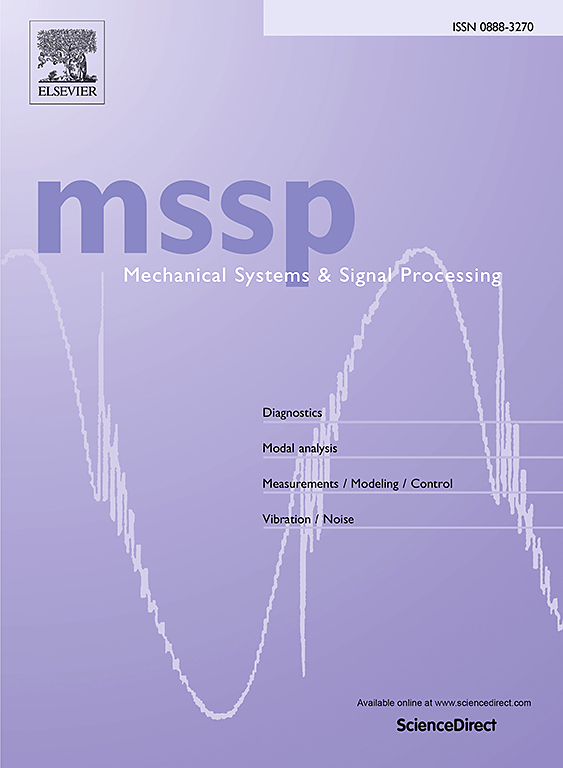On the use of reliability methods and Hamiltonian Monte Carlo for complex identification problems in structural dynamics
IF 8.9
1区 工程技术
Q1 ENGINEERING, MECHANICAL
引用次数: 0
Abstract
This contribution focuses on the solution of complex Bayesian model updating problems related to structural dynamical systems. By adopting the paradigm of Bayesian model updating with structural reliability methods (BUS), the problem of sampling the posterior distribution is restated as that of generating samples conditional on an especially devised failure event. To address the latter, the well-established subset simulation method is appropriately integrated with a Hamiltonian Monte Carlo technique to obtain samples at each simulation level. In this setting, a candidate state is first determined by simulating the trajectory of an auxiliary dynamical system, and then accepted or rejected based on the traditional Metropolis-Hastings rule. Such an approach has proven efficient in drawing samples from complex target distributions, and thus, it is adopted as an effective tool to explore involved domains related to challenging model updating problems. To assess the performance of the method, two test problems as well as one application example associated with a nonlinear structural dynamical model are investigated. Numerical results indicate that the proposed approach can be regarded as a viable alternative to address a class of complex identification problems in structural dynamics, including locally identifiable cases, models that are strictly unidentifiable based on available data, and cases with a large number of model parameters.
可靠性方法与哈密顿蒙特卡罗在结构动力学复杂辨识问题中的应用
这一贡献侧重于解决与结构动力系统相关的复杂贝叶斯模型更新问题。通过采用结构可靠性方法(BUS)更新贝叶斯模型的范例,将后验分布的抽样问题重新定义为在特定失效事件条件下生成样本的问题。为了解决后者,将完善的子集模拟方法适当地与哈密顿蒙特卡罗技术相结合,以获得每个模拟级别的样本。在这种情况下,首先通过模拟辅助动力系统的轨迹来确定候选状态,然后根据传统的Metropolis-Hastings规则接受或拒绝。这种方法在从复杂的目标分布中提取样本方面是有效的,因此,它被用来作为一种有效的工具来探索与具有挑战性的模型更新问题相关的涉及领域。为了评估该方法的性能,研究了两个测试问题以及与非线性结构动力模型相关的一个应用实例。数值结果表明,该方法可以作为解决结构动力学中一类复杂识别问题的可行替代方法,包括局部可识别情况、基于现有数据的严格不可识别模型以及具有大量模型参数的情况。
本文章由计算机程序翻译,如有差异,请以英文原文为准。
求助全文
约1分钟内获得全文
求助全文
来源期刊

Mechanical Systems and Signal Processing
工程技术-工程:机械
CiteScore
14.80
自引率
13.10%
发文量
1183
审稿时长
5.4 months
期刊介绍:
Journal Name: Mechanical Systems and Signal Processing (MSSP)
Interdisciplinary Focus:
Mechanical, Aerospace, and Civil Engineering
Purpose:Reporting scientific advancements of the highest quality
Arising from new techniques in sensing, instrumentation, signal processing, modelling, and control of dynamic systems
 求助内容:
求助内容: 应助结果提醒方式:
应助结果提醒方式:


